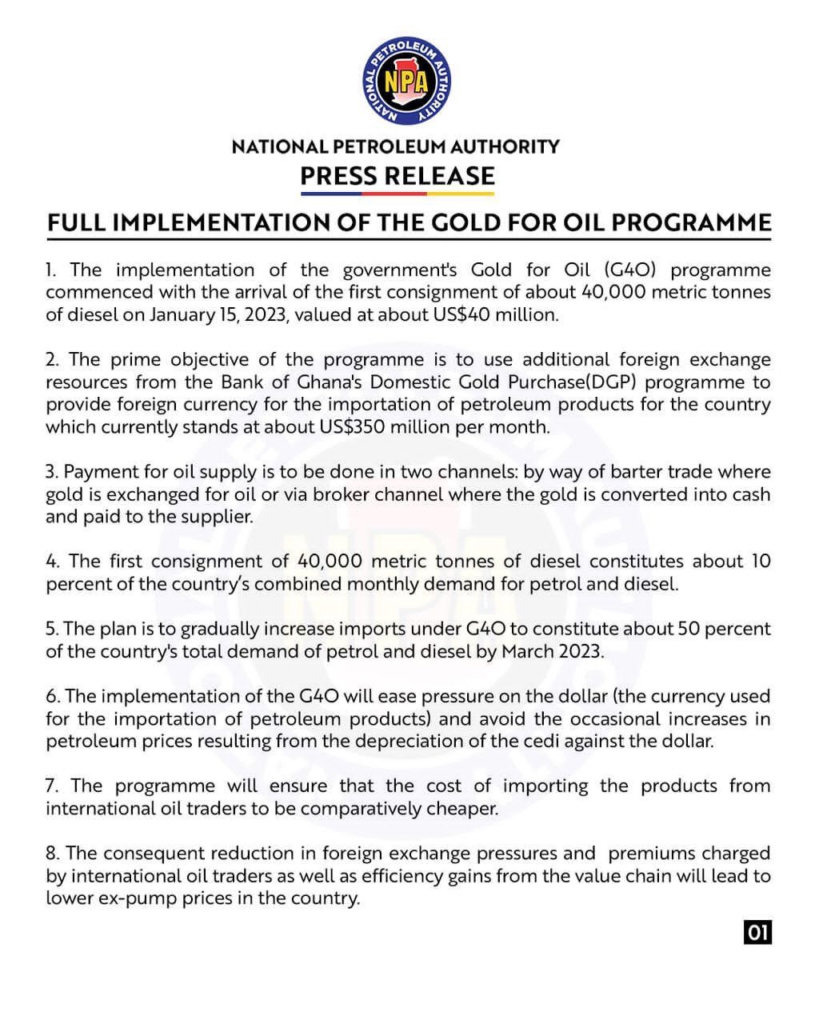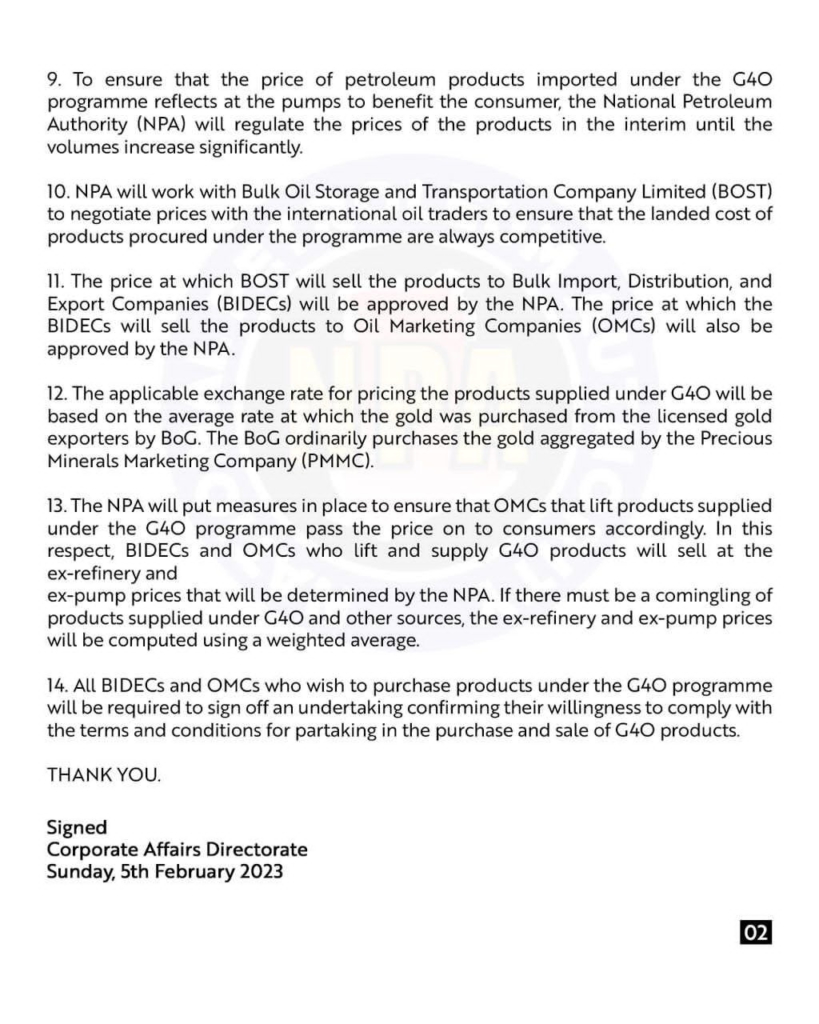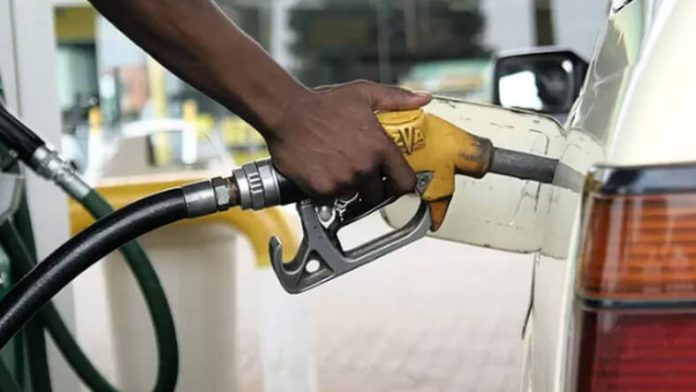The National Petroleum Authority (NPA), says the government’s ‘Gold for Oil’ deal will contribute to efforts to stabilise the prices of petroleum products across the country.
Payment for oil supply is expected to be done in two channels.
The channels will include a barter trade where gold is exchanged for oil “or via a broker channel where the gold is converted into cash and paid to the supplier”.
In a statement on Sunday, February 5, the NPA subsequently explained that “The implementation of the G4O will ease pressure on the dollar (the currency used for the importation of petroleum products) and avoid the occasional increases in petroleum prices resulting from the depreciation of the cedi against the dollar”.
The assurance from the Authority comes at a time when some consumers are raising concerns about the relevance of the deal, in relation to subsiding petroleum products.
But in its latest release, the NPA noted that “The consequent reduction in foreign exchange pressures and premiums charged by international oil traders as well as efficiency gains from the value chain will lead to lower ex-pump prices in the country”.
“To ensure that the price of petroleum products imported under the G4O programme reflects at the pumps to benefit the consumer, the National Petroleum Authority (NPA) will regulate the prices of the products in the interim until the volumes increase significantly”, the statement further disclosed.
“The NPA will put measures in place to ensure that OMCs that lift products supplied under the G4O programme pass the price on to consumers accordingly. In this respect, BIDECs and OMCs who lift and supply G4O products will sell at the ex-refinery and
ex-pump prices that will be determined by the NPA.
If there must be a comingling of products supplied under G4O and other sources, the ex-refinery and ex-pump prices will be computed using a weighted average”, the NPA added.
Read full statement below



